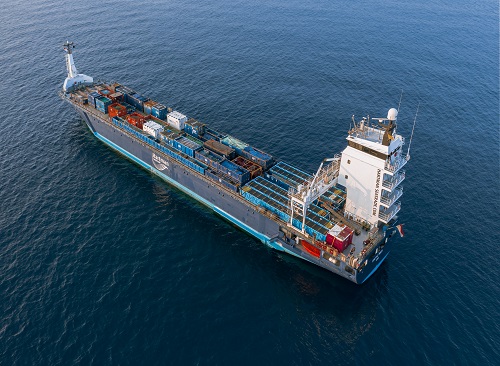What Is LCL Ocean Freight?
When you have only a few pallets to transport overseas, less-than-container-load (LCL) shipping is an economical way to do it. However, the LCL shipment procedure is a little more involved than FCL.
The LCL shipping term, sometimes substituted by “groupage,” is an acronym for less-than-container-load. It means that when you ship using this method, your goods travel in a shipping container with those belonging to other shippers. You may have the largest shipment in the container, or the smallest, or it may fall somewhere in between, but the container will never hold your cargo alone. It's a preferred mode of ocean shipping for many SMEs, since they typically ship in lower volumes than their bigger competitors, and may not find it practical to accumulate sufficient shipments to fill a container. LCL keeps goods moving in your supply chain, which means shipments can be sent as soon as they are ready rather than waiting until you have a full container.
With Klickez Logistics’s LCL shipment services and online digital tools, you won’t need to worry about the complexities of cargo consolidation and deconsolidation. Go online, get your quote, book your shipment, pay, and track your freight, while we do all the legwork.
Time-saving, convenient features of the Klickez Logistics online platform include:
- Simple LCL freight quotation requests—with fast results
- Access to a vast logistics network for expansive global LCL freight coverage
- Digital freight forwarding tools that simplify LCL shipment
- Port-to-port and door-to-door LCL logistics services
- Transparent, easy-to-understand LCL freight quotes
- 24/7 customer support team, for when you need a little help

Ship More, Stress Less: Our LCL International Shipping Benefits
Klickez Logistics spares you from the headaches of LCL logistics, because we…
- Leverage Agility’s resources, experience, and expertise in international LCL ocean shipping
- Provide understandable quotes that help you see all your shipping costs
- Offer a simple online booking solution
- Prepare and manage documentation to ensure 100% compliance
- Offer complete door-to-door, as well as port-to-port shipment
- Provide real-time shipment tracking and status notifications
These are the highlights, but if you’d like to learn more about how we simplify LCL shipping, leaving you free to focus on your business, some of our key features are described in more detail below.
How Does LCL Differ From FCL?
The primary difference between FCL and LCL logistics is in the use of shipping containers. LCL is as explained in the previous section of this page. In contrast, when you use a full-container-load (FCL) service, your goods will be in a container provided exclusively for your shipment.
However, this difference means that the process for LCL International shipping is different to FCL, involving more time, handling, and overall complexity, as well as a different fee structure, which can seem more complicated if you’re unfamiliar with it.
Unlike FCL shipping, for example, you will not receive a container into which you can load your goods directly. Instead, your consignment will need to be collected from where you store or prepare it, and delivered to a consolidation warehouse. There it will be grouped with other shippers’ goods to create a full container load.
The LCL Shipping Process
Groupage is the first activity that increases the time required for LCL transport, because your shipment must be unloaded from a truck or train and received into a warehouse. It may then sit in storage for a time while the consolidator waits for other consignments to arrive for groupage.
Next, the consolidator will combine your goods with other shippers’ to fill a cargo container. Only after this activity is complete will your shipment move on to a port for export clearance and loading onto a vessel.
In some cases, carriers may transfer LCL shipments from one container to another during the international stages of transportation. Even if that is not the case, after arrival and import customs clearance at the port of discharge, the container must travel to another consolidation warehouse for destuffing. That's the term used to describe the process of unloading the container and separating its contents into consignments.
Finally, your freight must be loaded onto another vehicle and transported to its place of destination.
When to Choose LCL Ocean Freight Shipping
As mentioned elsewhere on this page, LCL shipping is especially useful for small consignments, where a dedicated container is not justifiable due to cost, practicality, or both. If you can live with longer shipping times, or your shipment is too large to transport as air freight, but too small for FCL, you have a good reason to go with less-than-container-load shipping.
You might also have a more strategic reason to choose LCL freight services. For instance:
- Work fewer hours — and make more money
- Perhaps your storage or dispatch facility is unable to accommodate full containers
- Maybe you frequently ship small orders to customers in widely dispersed locations
- You could be serving a small market or testing a new one
- You may wish to keep inventory levels lean and therefore, work only with smaller inbound and outbound shipments
What Types of Goods Are Suitable as LCL Freight?
Like full container loads, you can ship most types of goods as LCL freight. Remember, though, that if your cargo requires special handling or temperature requirements, you'll need to ensure your freight forwarder consolidates it with goods of the same nature. It would be bad news if your perishable commodities were packed into a standard container without refrigeration, for example. You will also need to pay more for shipping such goods, due to the need for appropriately equipped containers and specialized resources.














